Even before coronavirus shuttered their colleges, disappeared their first jobs, or derailed burgeoning careers, millions of America’s “emerging adults” were stuck at home. Between 2000 and 2017, the number of 25-to-34-year-olds living with their parents doubled to reach 22%.
Blame the battering ram of a bad economy. Recessions in 2001 and 2008, along with wage gaps, growing college costs and the crushing weight of student debt, have left younger Americans late to reach traditional adulthood milestones like marriage, homebuying, and kids. The Washington Post reported that, compared to Boomers and Gen X’ers, Millennials — the “unluckiest generation” — have experienced the slowest economic growth. Members of Generation Z now emerging from college may face even tougher challenges.
Coronavirus isn’t helping. Facing down a locked-down spring and now, an aimless summer, young people have embarked on a mass migration back to the homes they once shared with their parents. It makes sense for recents grads and young Millennials to ride out economic uncertainty under a sturdy roof: They’re also the ones who are more likely to live in cities with hopped-up rents, and early unemployment statistics suggest they’re already faring worse after layoffs.
The pandemic also introduced other, more emotional, reasons to return. Stuck in small apartments with roommates whose risk-taking they can’t control, stripped of the mobility and fun that urban living advertises, untethered to a physical office and still learning basic adult survival skills, some young people are eager for the familiarity of family. Others have been lured back by anxious parents in need of care or company, or by the prospect of pandemic luxuries like a car, a backyard, and home-cooked meals. As death counts rise, many are anxious themselves — that they or their loved ones will suffer illness alone.
Whatever the reason for retreat, this Great Regression could end up leaving an enduring mark, experts suggest.
“There are a lot of factors that go into feeling like an adult: Some of that is living independently or being financially independent, or having a career or starting a family,” says Susan Anderer, a psychologist who focuses on young people in transitional phases. The coronavirus has put a lot of that on pause, and could set people up for longer-term inertia. “At any developmental stage there’s a push-pull,” she says. “There’s a push to want to move forward developmentally and also a tug backwards, because growing up is scary; it’s the unknown, you don’t know what it looks like on the other side.”
With bars and clubs closed and social lives on hold, the backward tug can feel stronger. “When the pull of being a grown-up is no longer there,” Anderer says, “why not be at home?” But risk-taking, exploring, and making mistakes out in the real world is part of identity formation: “It’s harder to envision who you want to become surrounded by your old self.”
It’s hardly a universal problem. Many young people lack the luxury of flying back to the nest, or don’t have a house (or their own bedroom) to go back to. Just as they increasingly live multi-generationally, more than a million Millennials support their parents financially; rather than becoming newly dependent, many are being thrust into expanding their caretaker roles themselves. And even if you’re not at your parents’ house, the coronavirus era wouldn’t be the time to take risks.
As weeks stretch into months, I spoke with a few just-out-of-college Gen Z-ers, and a few true Millennials (up to 39 years old) about how it feels to be back with their parents, and what they see coming next. Their reasons for returning vary widely, but many of them are experiencing the sensation — in turns terrifying and comforting — of interrupting their independent existence and plunging into limbo. Against familiar backdrops of high school posters and old photographs, they’re grieving, arguing and dreaming about their futures. What I found is that rather than a total regression, self-isolation at home has offered a different kind of personal growth: a pause for reflection before the race to adulthood resumes again.
Here are their stories, in their words — condensed and edited for clarity.
“Not being at home for so long caused a lot of pressure on our relationship”
Ann Tran, 23
Hometown: Dorchester, Massachusetts
Pre-Covid location: Boston, Massachusetts
Moved back home: Mid-March
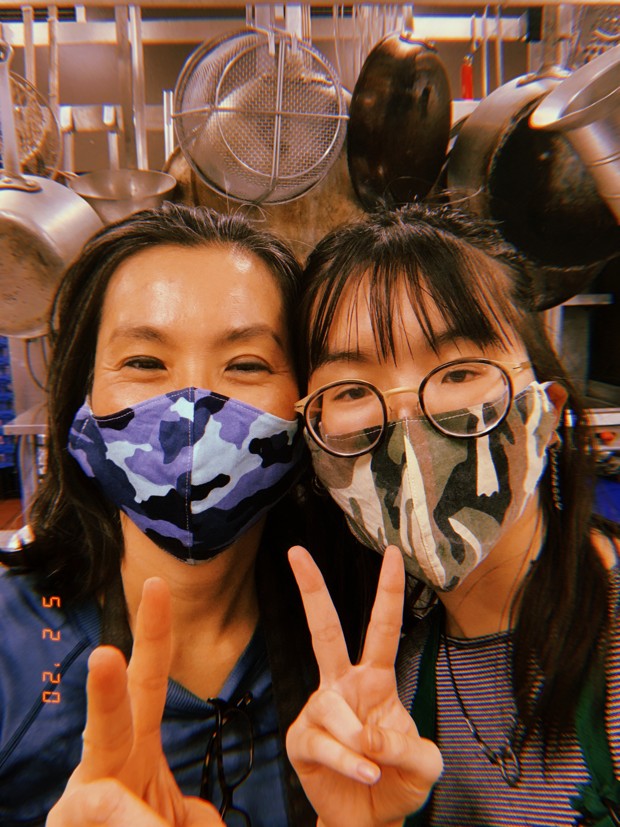
I grew up in Boston and Dorchester, which is a neighborhood in greater Boston with a pretty strong Vietnamese community. I moved to Pennsylvania for college and then came back in 2018. I chose to live in Boston again to re-ground myself and stay at home for a little bit of time before exploring the unknown, I guess. I wanted to feel supported by, and also support, my mom and my grandfather, who I’m very close to. I moved in with my mom for probably six to eight months.
Our relationship really deteriorated in that time. I think it was hard for her to recognize me as an independent person. [She’s] a single mom in a small household, and we have an intense and unique relationship: We are really close friends. And there’s also an expectation of parental respect. Not being at home for so long and not really feeling interested in that kind of family structure caused a lot of pressure on our relationship.
I made the decision to move out in September, which was really hard for her. She’s very unhappy about that, and it was another point of contention in our relationship. I’m an only child; she has a lot of expectations. I feel like the idea of moving out, in an Asian household, is not as well received. I guess she would ideally want me to live with her forever.
I stayed in Boston, a couple miles away, living with friends, and found myself a lot happier. And I was able to manage our relationship better. Every week, we would have brunch together and do some sort of hobby or chores, and established a newfound rhythm to seeing each other and appreciating time spent with each other. I think it really healed our relationship to be farther apart, and to feel like I was making making decisions on my own.
And then Covid happened. My roommates moved back [with their parents], and I tried to stay at home with my mom. Moving back in has been has been hard in a lot of ways, but also more manageable, I think, from the lessons learned living apart. For example, just keeping distance except for errands or meals and understanding what I can control, which is my reaction to what she does. If she’s angry or if she’s upset, there’s not really much that I can do about that, even if I tried to calm the situation.
I think if I pushed, I could have stayed in my own apartment, but there’s a great luxury afforded to be able to live here and feel safe and to spend time with someone in person without being afraid. It feels like otherwise I’d just be alone. We’ve been taking a lot of walks on the beach; we’ve been volunteering every week for a soup kitchen. Our arguments come out of these unprompted situations where she feels almost threatened by the idea that I don’t really want to spend time with her. And so I’ve worked on making sure that our interactions and our time spent together are really well-treated, or appreciated.
I’ve been thinking a lot about growing up as an only child. The other week, I was doing a jigsaw puzzle, and it reminded me of when I was younger and would sit in the bathroom for hours just by myself, after a shower and just — I wear glasses and I’m pretty blind without them, so I’d just not really stare at anything. There’s this stillness, almost, that I think comes with being an only child — an acceptance of the stillness that I feel like I’ve felt very far away from before March. Every weekend was planned. I’d get a meal with someone for brunch and then do errands, then do something for dinner and go to some event at night, or a party. All of those things sound so exhausting now. It’s very hard to imagine re-entering society with that same kind of energy.
In the fall, I’ll be moving to London for grad school. The concerns before I got into school around Covid were really a fear of — just kind of acknowledging the luxuries of my job and my home now. There are so many people who are unemployed out there, and struggling, and it just felt almost absurd for me to willfully opt out of this job and period that can be very comfortable. And I think my mindset changed over the last couple of weeks. It’s almost like, because life is so fragile I should be doing this, and pursuing an interest of mine, and trying to grow in unexpected ways. Not in spite of this.
“My old name is up everywhere”
Andrew*, 30
Hometown: Central Virginia
Pre-Covid location: Washington, D.C.
Moved back home: Early April
*Name changed to protect his identity.
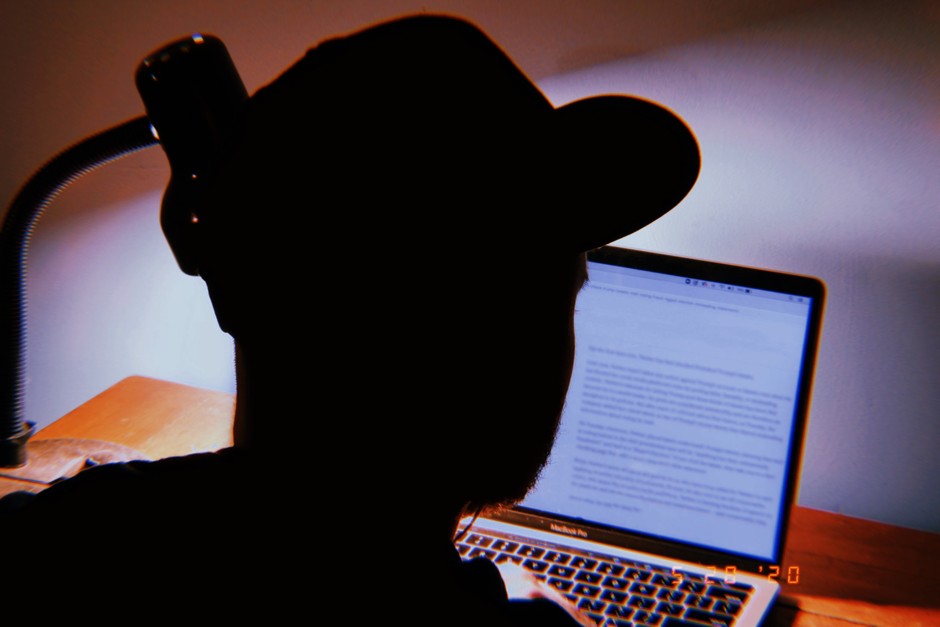
I recently broke up with my partner of many years, and so I had to get a new apartment. Right when all of this was starting, in March, I moved into a group house where I didn’t have a preexisting relationship with any of my roommates.
I’d been living in D.C. under lockdown for about two and a half weeks and I was getting into a really good groove. But then I found out that my roommate’s girlfriend is a health care worker, working with patients who are positive for Covid. I had asked if it was possible that, when the girlfriend was over, could they just hang out in my roommate’s room or outside instead of in the common spaces — and my roommate told me that I was being panicky and that my paranoia was bad for her mental health.
So after a few sleepless nights, I decided that the best bet was for me to move back in with my parents, which was a stressful decision. I’m a trans person, and we have had some pretty hard years together. My parents were very, very not on board with me transitioning; my dad didn’t call me the right name until I was 23. Pretty much every time I would come home during college, we would argue. It was just too much for me mentally. I haven’t lived here for a while — every summer after college, I stayed in my college town.
I came out to them when I was 18 — so, 12 years ago — and so I thought that maybe now it would be a little bit better: I am secure in my identity, and I have a really strong support system. And it hasn’t been quite as bad as I thought it was gonna be. But then in the past few weeks, it has just become clear that we as a team cannot live together anymore.
They’ve not been outright rude without anything. They’re not trying to be argumentative. They’re not trying to be anti-trans. But the ways in which they live are not great. For instance: I gave myself a buzz cut for quarantine, and my mom hasn’t been happy about it, and she keeps telling me I need to grow my hair out. It feels really trans-related to me. Because a lot of our relationship growing up was my mom telling me that what I was wearing wasn’t acceptable and that the decisions that I was making about my body that for me felt affirming, to her felt wrong.
Again, I’m 30 years old, and I came out 12 years ago. I realized last week that my dad still hadn’t changed my name in his phone. Which, of course, is his prerogative, but that tells me that he’s clearly not over it.
In some ways, being back in this physical space has been kind of dysphoria-inducing and stressful, and sort of at odds with the life that I’m living now. My old name is up everywhere, and there are a lot of old photos of me. And then I’m surrounded by all of these things from high school, which are reminding me of a time when I was feeling really sad and trapped and like I was never going to be able to look like how I wanted to look. But in other ways, it has also been kind of empowering to be able to be around my old name and not feel really stressed out about it; to notice it and be like, that’s silly, and keep going on with my day.
It’s also fun — this desk is where I realized that I was trans, in 2007. I was reading online forums and happened to read the experience of a trans man, and then I realized, “Oh my God, that’s me.” And so it’s really fun to be here with a beard and my new male-pattern baldness. There were times in high school when I felt like life was never going to go in the direction that I wanted it to. And it’s really strange to be at my house because of circumstances like Covid, where I have no control over it — yet at the same time, I am in that physical space from my childhood, having lived 10 years of autonomy and happiness, and realizing the contrast between where I was when I was 17, and where I am now that I’m 30. It’s just so different.
If I lived in my parents’ hometown [long-term], I was thinking, I’ll only be Zooming with my friends in the same way as if I was in D.C. So is there much of a difference? But then I thought more about it. A lot of my thinking about where I’m living right now is currently based upon where my queer community is. I don’t know any trans people in my hometown right now. As queer people whose families often reject us — whether or not they mean to — that community is such an important stand-in for family, that I don’t see how I could live in an area without a large population of queer and trans people that not only share my identity but also share more specific interests. I’m just not sure how I could do that.
“It feels like I’m living in the shell of my former life”
Ellis Hyman, 23
Hometown: Calabasas, California
Pre-Covid location: Crown Heights, Brooklyn
Moved back: March 17
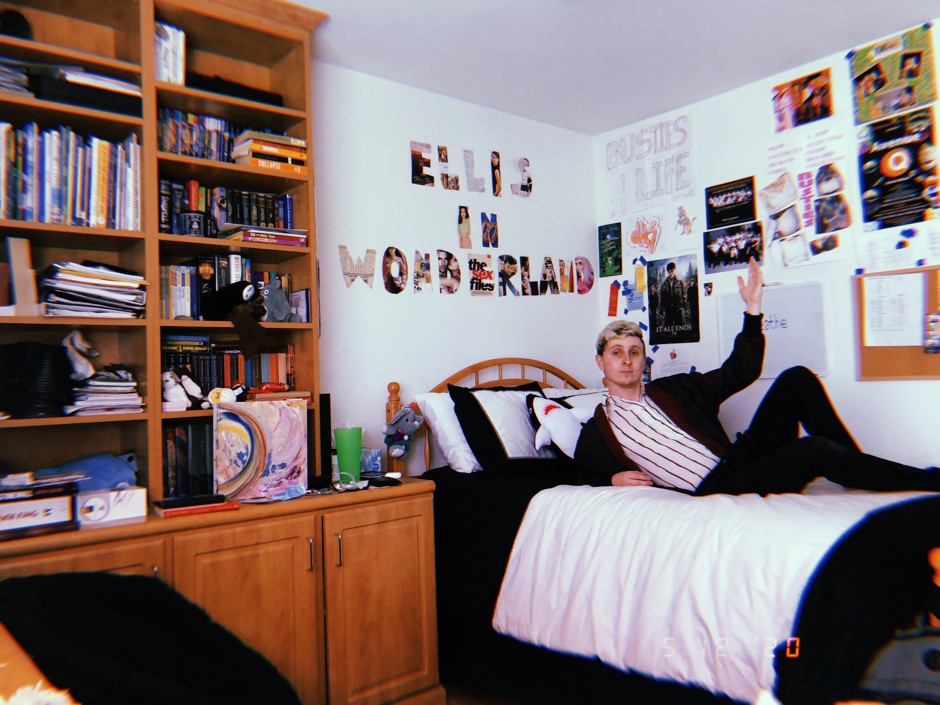
I started working at a production company [in New York City] in the middle of February. By the beginning of March, they were like, yep, we’re shutting down everything. I thought, I probably should get out of New York at this point. I’m going to be stuck in a tiny little place where I’m going to run into a lot of people, versus be stuck in a place where I don’t want to be but I have more space, I have access to a car, and I can avoid people more.
I felt kind of cowardly because my friends were still in New York and they’re making do, and I went home to be more comfortable. But I’m glad I left: I would have probably been a bit less happy being stuck in one tiny room.
I have a good relationship by parents, but they’re in the middle of a separation from each other. That’s one of the reasons why I wanted to leave L.A. in the first place — just to get out of the middle of all that drama. Now I’m right back in the middle of it. I was still talking to them a lot when I was not living in California, but now I’m living with just my mom; my dad’s in a different apartment.
I think it’s really good for my mom because she’s been alone the past 10 months or so, and just having company has been really nice, especially right now. You know, everyone is online making memes of “being quarantined with a significant other versus quarantine being single.” I can’t imagine how hard it is for her.
My room has not been physically touched since my high school graduation. Literally, the calendar on my wall says “June 2014,” the month and date I graduated high school. It is a complete time warp being back there. It’s not awful, but it just feels like I’m living in the shell of my former life. I think it’s making me really think about who I used to be, and who I’m becoming. All I have to do right now is think about the future, because I can’t do anything besides sit in my home. It’s making me very emotional and sentimental, and, like, stupid.
The short-term future is to get back to New York as soon as possible. But nobody really knows what it’s going to look like after this has subsided — people are saying that things are going to change permanently; the way we restructure society and interact with each other. And I’m kind of believing it, and also kind of not believing it. It might not be fun to live in a dense urban place, because things might really be different!
I’m receiving unemployment right now, so I’m able to pay for the basic necessities, but that will run out eventually. I didn’t really have a specifically steady career to go back to — working in production entertainment, that’s fully on pause right now. So there’s not really a reason to go back until it’s safe, and also until I can get a job. The future is very malleable at the moment, which is exciting and also scary.
“Every day is up in the air”
Isabel,* 22
Hometown: Dallas, Texas
Pre-Covid location: New York City
Moved back: March 12
*Isabel asked CityLab not to use her last name, because she didn’t want to jeopardize her future employment chances.
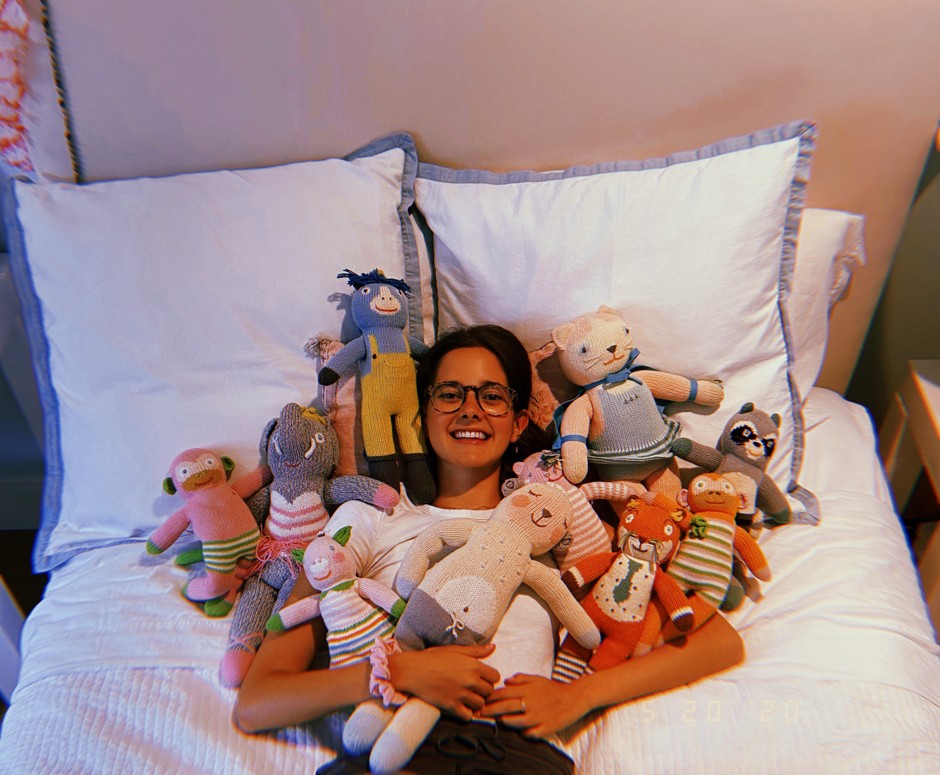
When my best friend first suggested that we should go home to Dallas, I thought that seemed a little dramatic. But in my group chat with friends from college, everyone was like, “Who’s planning on leaving this weekend?” My friends who are teachers, their schools were shutting down. It felt like everyone all at once was under the impression that we needed to leave. Within three hours, I’m like, “Whoa, I need to get out of the city.”
The thing I kept thinking was, New York is a city you want to be in because you’re always out and about, you’re never in your apartment — you’re in crowded spaces, whether that’s a subway ride or a restaurant, or out at a concert. For me, those are the reasons why I wanted to be in New York. I thought, if all of those privileges — because they are privileges — if all those are taken away, then I’ll get pretty lonely and isolated pretty quickly. I packed to be home for two weeks.
My friend — the one who moved back from NYC, too — lives within walking distance from me. It’s been really hot, so it feels like summer. We keep saying, walking in the heat from my house to your house to sit on your front swings feels like high school. Since college started I’ve had summer jobs away from home, so I really haven’t been home in the summer — especially with nothing to do — since high school. I don’t have anything on my schedule for the weekend or for the foreseeable future. That creates a feeling of carefreeness — every day is up in the air, you know?
I keep wanting to do big organizing sessions, and clean up my desk or the shelves or my closet, and then I realize I don’t need the bare minimum in my house here, like I do in New York. But also when I have done those little clean-ups, I keep finding old journals or old letters from friends, or disposable camera pictures. It’s weird having to address where you were at different phases of life. Sometimes I see things from when I was a senior in high school, and I’m like, I think I was a more thoughtful person then, and I wonder why.
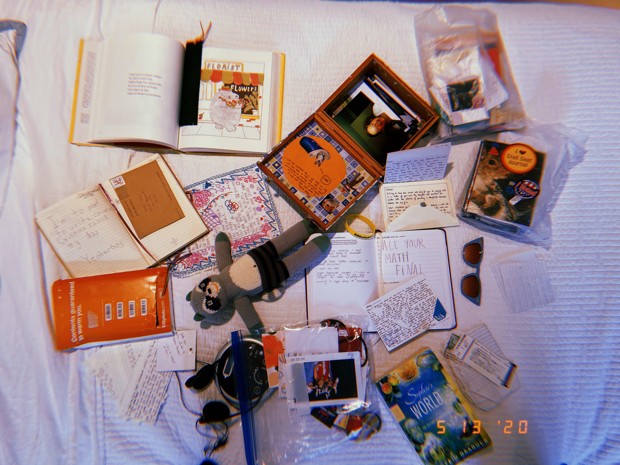
For the first month, I kept having that weird feeling where you’re just walking and you’re hit with the most specific memory that makes you cringe really, really hard. Fortunately nothing traumatic, but things like: “Oh, I spilled a bunch of ketchup on my friend's nice jacket in high school, and that was a really awkward and careless moment.” Or, “Oh, I turned in that assignment late in college for no reason, and I feel like now that professor — who probably doesn’t remember me — thinks that I’m a slacker.”
And I’ve been noticing a lot of times in my past where I failed to be very resilient, or perseverant. I don’t know if it’s just because I’m one year out of college, or it’s because of quarantine, but I feel like that’s something that I regret that keeps coming up. It’s moments where I disappointed someone just because I was being lazy or not working hard enough. And that’s why I’m eager for things to resume and eager to get my next job, so I can prove that wrong.
There’s also just been a lot of reflection on feeling really lucky to be in the situation I’m in, and the weirdness of recognizing that what’s happening right now is causing a lot of suffering to the majority of people in the U.S., but this will not fundamentally change my life — beyond having a little more time to think about what I want to do.
“We’re really feeling the isolation of the single-family detached home”
Allison Wattenbarger, 28
Hometown: Philadelphia area, Pennsylvania
Pre-Covid location: Jerusalem, Israel
Moved back: Mid-March

My siblings and I were homeschooled until high school, which I like to say prepared me very well for the pandemic. Then I went to high school in Philadelphia, and went to Penn for college, then spent a year in Canada, working there; then I did a three-year Master’s of Divinity at Duke University. After that, I had a volunteer fellowship in Jerusalem at an institute that’s run by the University of Notre Dame. It turned into a paid position, working with undergraduates studying abroad there.
In mid-March, all the students had to fly home, and the expat staff were given the choice to stay or go. The rumor was that the airport in Tel Aviv might close, and that we could then ended up being stuck in Israel for months. I’m starting a Ph.D. in the fall, so I didn’t want to be stuck in Israel.
I've been bouncing back and forth a lot because I have this kind of weird expat student life — I was back at my parents’ for about three months last spring getting a new visa. This isn’t the first time I’ve been back for an odd extended period since the end of college, but for me, there was a big question of: Would I rather stay in Israel where I have some friends but I can’t see them at all, or go back to Philadelphia? I haven’t lived there, I have friends and connections from high school and college but I don’t have a community. It’s just me and my parents, who I get along with, but do I want to live with them indefinitely? It’s been smooth — I’ve always gotten along with them pretty well. And since I’ve been in and out of the house in the past couple years, I kind of knew what to expect coming back, which is helpful.
I still have some structure in my life — I’m still doing some of my work. My parents both teach and they were teaching up until university semester finished, so we established some new routines that were not part of my childhood life. My mom and I have wine and cheese at 4 p.m. every day.
But it’s also weird, walking around the neighborhood and thinking, this is where I was when I found out that I didn’t get into the college I wanted to go to. A close friend from childhood died of an overdose, and I went to the socially distanced funeral. It was really sad. And it was odd to go to a funeral with all these people I hadn’t seen for 10 years while wearing masks and sunglasses. You can’t recognize who these people are that you saw every day when you were five when they have masks all over their face. It’s a funny old-and-new mash-up.
I had a great little apartment in Jerusalem where I was living on campus and most of the people I knew in Israel were right there across the courtyard. Everybody would hang out every night. Being there for two years really sold me on just living in a place where people to spend time with are just next door. Coming back to the U.S. where my parents live in the city limits, but not downtown, I’m just struck by how much I dislike being a young single person in the semi-suburbs.
That, plus the American response to the pandemic, makes me want to return to being an expat and spend more time outside of the U.S. once I finish school. I definitely have some reverse culture shock preference for more communal ways of living, now that we’re really feeling the isolation of the single-family detached home.
“I don’t think we ever had family dinner as much as we’re having now”
Mikayla Harris, 24
Hometown: Potomac, Maryland
Pre-Covid location: Washington, D.C.
Moved back: Mid-March
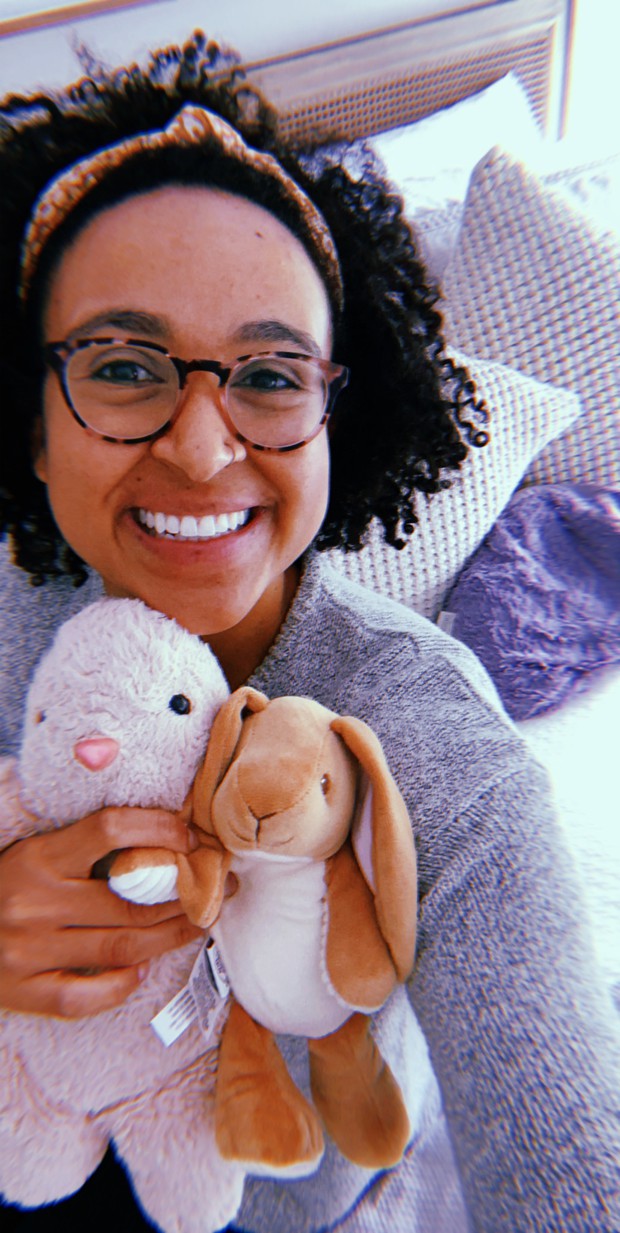
My roommate and I had always planned on ending our lease at the end of March, mainly because I was planning on taking time off work to travel before law school. (Obviously that’s not happening.) She was going to move to New York (that didn’t happen, either). Her parents are both doctors in St. Louis, so as Covid started ramping up in March, they were like, you have to get out of there. She panic-packed, and two days later I was panic-packing too.
My brother, who’s 21 and in college, had spring break, so he was going to be home anyway. He’s definitely reverted a lot more than I have. My mom wakes him up every morning and makes breakfast for him. But he’s 21, so I guess it’s slightly different.
We’ve stayed constant in terms of having family dinner every night, but it’s gotten to the point where, since we’re all at home all day, we don’t have any new information to share. Some nights we’re fairly quiet, and other nights we’ll reminisce about things, and sometimes we’ll talk about politics. But in high school, we all had such different schedules. Especially since both my parents worked, I don’t think we ever had family dinner as much as we’re having now. It’s been kind of special.
When I was deciding between law schools this spring, Covid definitely became a factor in a way I didn’t anticipate. In my mind, I was like, OK, if I’m in school across the country, it’s harder to get home. Whereas if I’m someplace driving distance and something like this happens again, it’s just nice to know that it’s close by.
“It’s going to be a really different world”
Maria Buczkowski, 26
Hometown: Detroit, Michigan
Pre-Covid location: San Francisco, California
Moved back: Mid-March
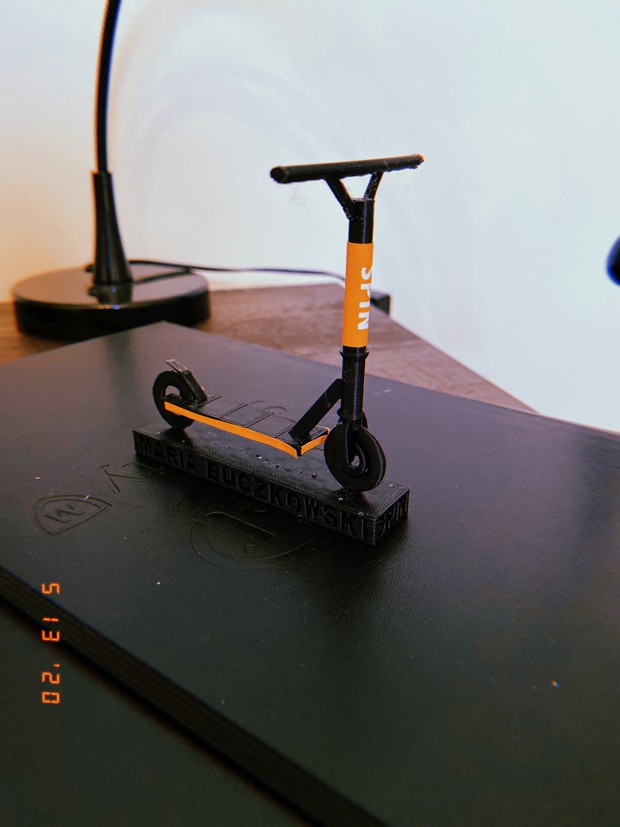
I just moved to San Francisco from D.C. about a year ago in July, and I was living in my apartment by myself. I don’t have a car in San Francisco — I walked to work every day or I could use a scooter. My mom kept saying, it’ll be so much easier here. She was really adamant about me coming home, so I did.
At first I didn’t want to come home because I was afraid, if I was asymptomatic, I could get my parents sick; or that after going on the airplane I would potentially come down with Covid. My sister lives in Detroit, so I stayed with her for 14 days and quarantined myself.
I grew up with a family in the automotive industry — my dad has worked for Ford for over 40 years. I also work at Spin, which is owned by Ford, so we nonstop talk about our work, which probably annoys my mom so much. It’s funny because I haven’t owned a car since I was 18. Even though I grew up in a car-centric world, I’ve never really relied on a car. This pandemic has really changed how people are thinking about transportation in general.
I’ve been really lucky, because I’m able to work from home. I think it does make a lot of people reconsider — I mean, I’m paying X amount of money for a place that I’m currently not inhabiting. My lease ends in July, and I’m thinking about going month-to-month after that. I’m a little fearful about going back to San Francisco. It’s going to be a really different world.
“I didn’t expect the crushing feeling of loneliness”
Emily McPherson, 22
Hometown: Denton, Texas
Pre-Covid location: Oklahoma City, Oklahoma, where she works as a researcher for the State House of Representatives.
Moved back: Mid-April
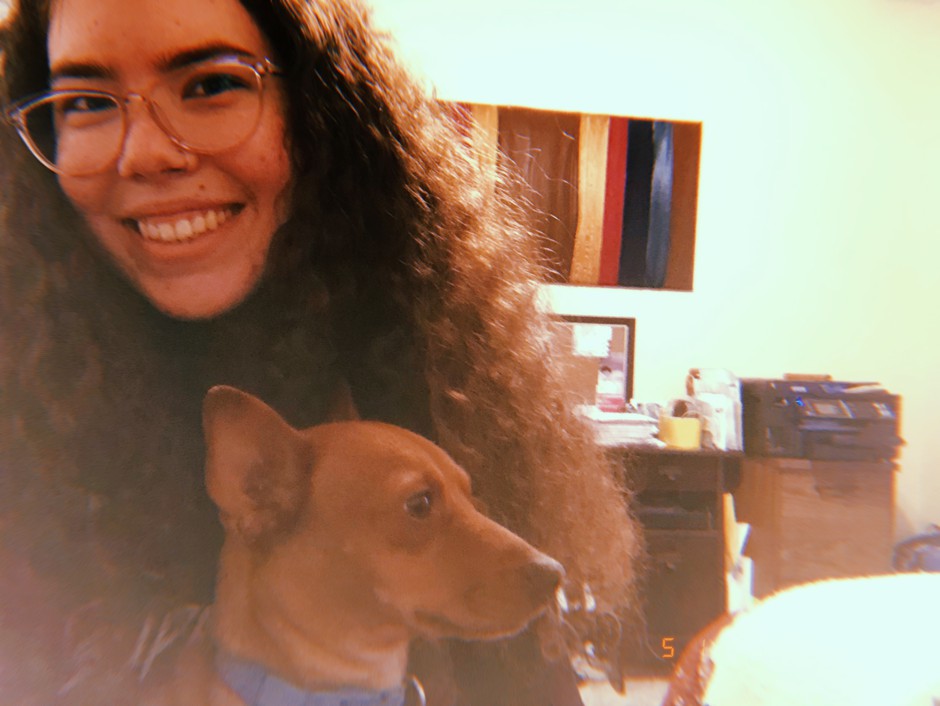
They sent us home from work mid-March — we were all coming to work, and then all of a sudden someone in the building tested positive for Covid. I didn’t mind, at first: I’m pretty introverted so I was vibing, and I really value my independence.
My mom had already texted me saying, “if you want to drive down and be with us you can,” but at that point I wanted to be alone. Once mid-April hit, I was like, alright, I need to not be alone anymore.
It’s kind of weird, because I just graduated college, so for the past 4.5 years I’ve been living away but still financially dependent on my parents. Now I just became financially independent of them, I’m living on my own and paying my own bills. And even though it’s my choice, it’s still really weird to be back with them.
My parents’ house is pretty small — you can pretty much hear everything. My dad is in one room on his Zoom calls, my mom is in another room on her Zoom calls, and then I luckily do not have to participate in Zoom calls. But I have to watch a lot of meetings that are being live-streamed. We’re all in separate rooms, but we still hear each other. When I call my friends or I watch TV, I’m very aware that they can hear me — I don’t necessarily talk to my friends the way I normally would if I were alone; I don’t want to use bad words because my mom is a kindergarten teacher, and she’d kill me.
On the first [of May], my state opened up, and at first it looked like I was going to have to go back as well. So on [a recent] Saturday morning I went back fully expecting to have to stay there — literally as soon as I went home my boss emailed and said, yeah, you can continue working remotely if you want. I stayed the night in my apartment and then drove back down the next day.
I didn’t expect the crushing feeling of loneliness when I got back to my apartment. At first I was thinking, “I’m having a good time at my parents’ house, but pretty soon I’m going to get tired of it and want to go back,” but I’m very surprised because I have not gotten tired of it!
Being at my parents’ house has definitely showed me that when the lease of my apartment is up, I would love to rent a house. I’m nowhere near the stage of life where I can buy a house, but seeing how happy my dog is in the backyard and also how happy I am with a backyard — I’ve been hanging up my hammock and sometimes I work outside — I kind of feel guilty bringing my dog back home to my apartment.
“Both my mom and I keep saying it’s time for me to go”
Alexandra Hiniker, 39
Hometown: Prince George’s County, Maryland
Pre-Covid location: Pittsburgh, Pennsylvania
Moved back: March 17
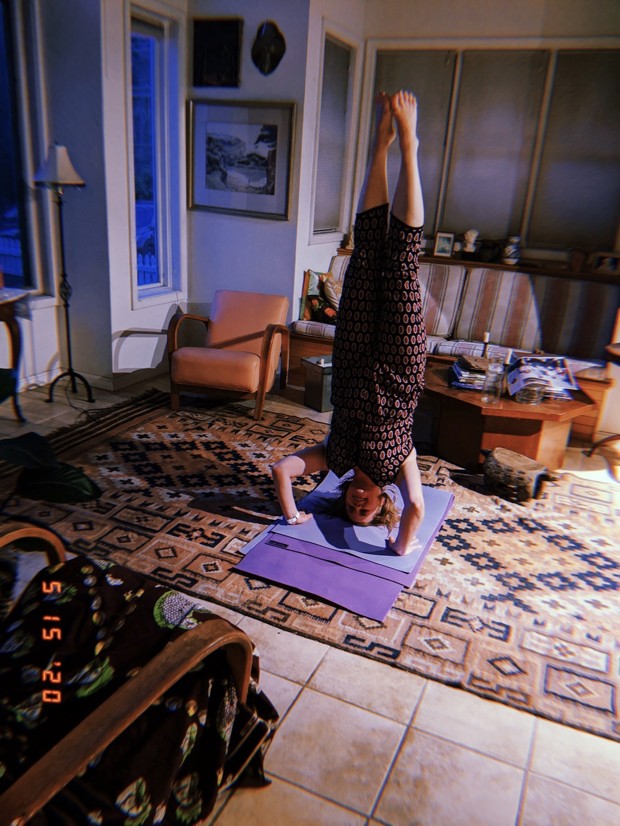
I went to college in Chicago, then graduate school in Poland, studied in France, lived in D.C., Cambodia, Laos, Lebanon. In 2012, I decided to move back to the U.S. and thought New York seemed like the right place to be.
This December, I quit my job. I’d been planning for about 10 years to go back to Cambodia with my mom and dad; I saved up vacation days and asked for my two weeks off, and was denied. I said I have to go now or never, so I quit, with nothing else lined up.
I agreed with my parents that if I didn’t get a new job shortly that I would move home — even though that seemed wild and crazy, and I never wanted to do it. But then on my last day, as I turned in my things to HR, I got another job offer with Carnegie Mellon University in Pittsburgh. It was just funny because I was considering moving home as an option before all this happened.
So I moved to Pittsburgh in January. And then on March 16, my dad had a fatal heart attack.
I came down here to Annapolis, Maryland, on the 17th to be with my mom. It was really scary to come down — it was like, oh my gosh, am I going to bring coronavirus? But it was the right decision, and it’s been wonderful being here. My mom has gotten to Zoom into my life in Pittsburgh — she’s met my coworkers, and my yoga teacher.
I thought it would be for two weeks, but then there was no reason to go back. I’ve been pushing back leaving; every week I’m like, oh I’ll just stay another week, I’ll stay another week. You lose all sense of time. And who gets this opportunity, when they lose a parent, to spend an indefinite amount of time with their family? It’s amazing. I feel so lucky, really. But both my mom and I keep saying it’s time for me to go. I need to leave to understand what happened here. I’m just living in a weird limbo where I don’t — I honestly still think my dad is going to come home. And it’s such a strange feeling.
His birthday was April 4, and we had a Zoom celebration of life, because he was very clear that he wanted a big party. I’d been putting it off, but his brother said we have to do something. And that helped so much. You know, it’s like, “Oh, God, another Zoom,” but it was really great. We’ll have a big party next April.
In terms of deadline to move out, I finally decided. My family never celebrated Father’s Day as a special day. But it’s mid-June, a natural cutoff. That gives me time, and a deadline to go through all my dad’s stuff. I think that it’ll help me process that my dad is actually dead, and that I have to start my life in Pittsburgh and move on. I look forward to helping to build that part of my life.
